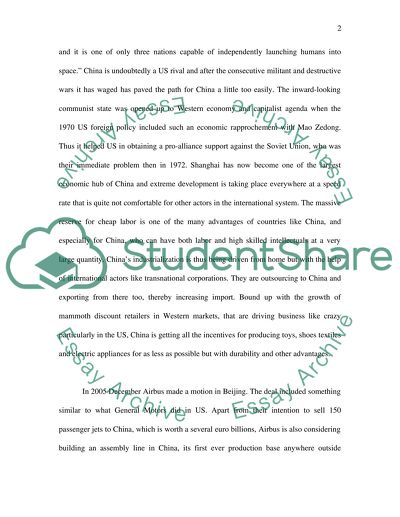Cite this document
(“China in the World Economics Essay Example | Topics and Well Written Essays - 3000 words”, n.d.)
Retrieved from https://studentshare.org/politics/1503977-china-in-the-world-economics
Retrieved from https://studentshare.org/politics/1503977-china-in-the-world-economics
(China in the World Economics Essay Example | Topics and Well Written Essays - 3000 Words)
https://studentshare.org/politics/1503977-china-in-the-world-economics.
https://studentshare.org/politics/1503977-china-in-the-world-economics.
“China in the World Economics Essay Example | Topics and Well Written Essays - 3000 Words”, n.d. https://studentshare.org/politics/1503977-china-in-the-world-economics.


